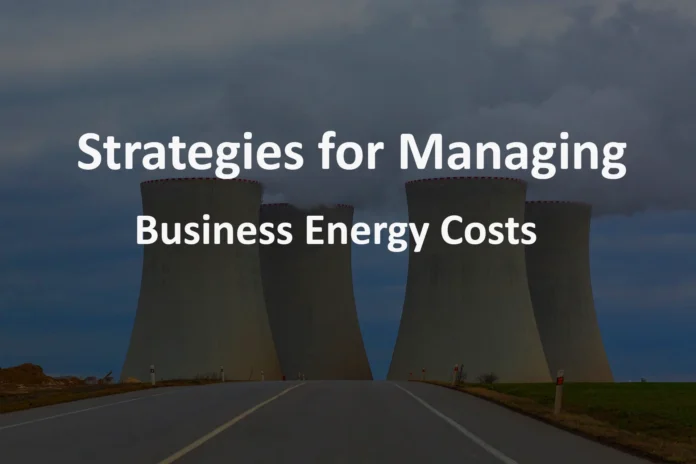In today’s competitive business landscape, managing energy costs is essential to maintain profitability and remain competitive. As energy prices continue to rise, it’s critical for businesses to implement cost-saving strategies that reduce energy consumption and minimize waste. From small businesses to large corporations, every organization can benefit from better energy management practices.
In this blog post, we’ll explore some of the most effective strategies for managing business energy costs, including energy-efficient equipment upgrades, employee engagement programs, and renewable energy investments. Read More to find out how you can start saving on energy costs today!
Evaluate Energy Consumption and Costs
Energy consumption can be a significant expense for businesses, but there are strategies that can be implemented to help manage these costs. The first step in developing a cost-effective energy management plan is to evaluate current energy consumption and costs. This step involves analyzing utility bills and identifying patterns in energy usage, including peak demand times and areas of high consumption.
Once these patterns have been identified, it becomes easier to develop strategies for reducing energy usage during peak times or in areas with high consumption. Additionally, evaluating energy costs can help identify opportunities for cost savings, such as negotiating better rates with utility providers or implementing energy-efficient technologies.
Implement Energy-Efficient Technologies and Practices
Implementing energy-efficient technologies and practices is a crucial strategy for managing business energy costs. By making small changes, such as installing LED lighting and programmable thermostats, businesses can reduce their energy consumption and save on their energy bills. Additionally, implementing more advanced technologies, such as energy management systems and renewable energy sources, can provide even greater cost savings and environmental benefits. It is important for businesses to conduct an energy audit to identify areas where they can improve their energy efficiency and create a plan for implementation.
Consider Alternative Energy Sources
By diversifying energy sources, businesses can reduce their dependence on traditional fossil fuels and mitigate the risk of price fluctuations. Three promising alternative energy sources to consider include solar power, wind power, and geothermal energy.
Solar power involves the use of photovoltaic cells to convert sunlight into electricity, while wind power involves the use of turbines to generate electricity from the wind. Geothermal energy, on the other hand, utilizes the earth’s natural heat to produce electricity. Each of these alternative energy sources has its own set of advantages and disadvantages, and it is important for businesses to consider their specific energy needs and financial constraints before deciding which option to pursue. However, with the rising demand for sustainable and environmentally-friendly practices, incorporating alternative energy sources into business operations is becoming increasingly necessary.
Optimize Lighting and HVAC Systems
Lighting and HVAC systems represent a significant portion of a building’s energy consumption, and optimizing these systems can lead to significant energy savings. For lighting, businesses can switch to energy-efficient bulbs such as LEDs, which use less energy and last longer than traditional bulbs. Automatic lighting controls such as motion sensors and timers can also help reduce energy waste by ensuring that lights are only on when necessary.
HVAC systems can also be optimized by using programmable thermostats to adjust temperature settings based on occupancy and usage patterns. Regular maintenance of HVAC systems, including cleaning and replacing air filters, can also improve energy efficiency and reduce operating costs. By adopting these strategies, businesses can optimize their lighting and HVAC systems to improve energy efficiency and reduce costs.
Use Energy Management Software
By providing real-time data on energy consumption, demand, and costs, this software can help identify areas of inefficiency and opportunities for improvement. With the ability to set energy usage targets and track progress towards those goals, businesses can make informed decisions on everything from equipment upgrades to employee behaviour changes. Additionally, some energy management software can integrate with building automation systems, allowing for automated adjustments to energy usage based on occupancy and other factors.
Also Read: Harnessing the Tide: The UK Water Industry’s Response to Climate Change


